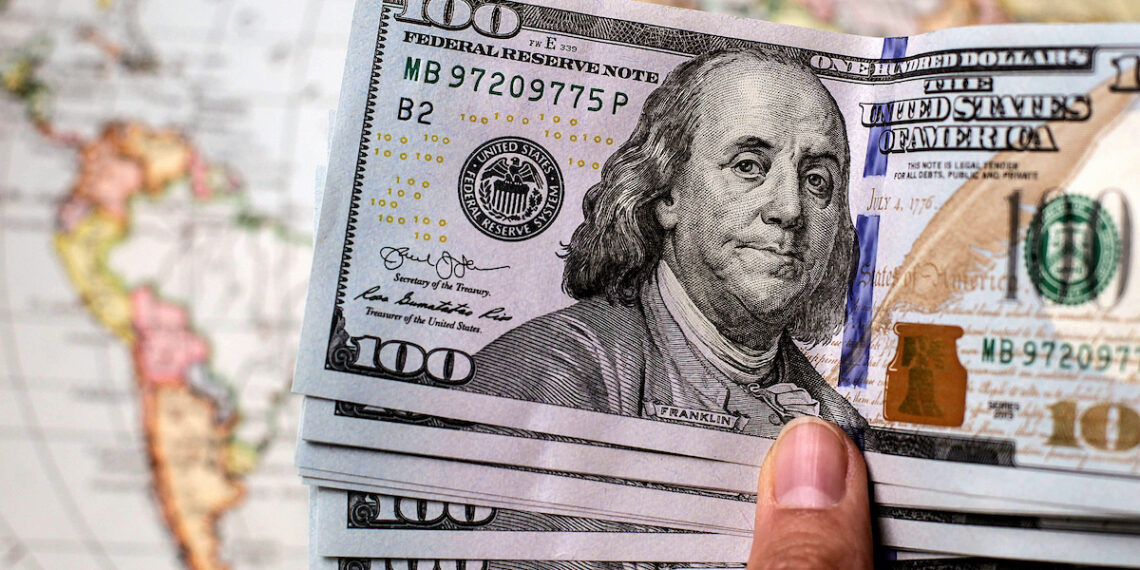International leaders closed out 2021 by endorsing a global tax deal that aims to stop the so-called “race to the bottom.”
According to United States’ President Joe Biden, the agreement “will finally even the playing field for American workers and taxpayers, along with the rest of the world.”
But in reality, the plan will do little to benefit the world’s poorest countries. In fact, based on years of fieldwork in export-dependent countries like Nicaragua and Mexico, I believe the new global tax will further exacerbate global inequities, not reduce them.
Experts estimate that the global tax bill, which will be implemented in 2023, will generate $150 billion in revenue per year. However, by focusing on the taxation of corporations in the countries where transnational companies sell their products and services, the bill reinforces a global economy that rewards consuming countries with public revenue at the cost of countries that actually provide basic goods and services.
Put simply, the global tax bill reifies the neoliberal model that has suffocated the working class for more than four decades, and thus, is unlikely to lead to any meaningful change.
Neoliberalism
Neoliberalism was a free-market response to the New Deal, which posited that the state should play an active role in freeing the market from arbitrary constraints.
The neoliberal movement has its roots in the 1950s, but it fully matured in the 1980s under the guidance of Ronald Reagan and his team of technocrat economists, who used the ideology to fundamentally transform the nature of global commerce.
Reagan’s economic reforms — known as the Washington Consensus — encouraged the world’s poorest countries to take on massive debt while lowering barriers to trade by reducing taxes, tariffs, and quotas.
Some countries willingly adopted the policies but most nations were forced to accept neoliberal procedures as part of economic recovery programs overseen by the World Bank and International Monetary Fund.
In theory, lower barriers to trade combined with minimal taxation would foster international investment, support a robust export industry, encourage democratic reform, and in time, lift all boats as the revenue from a new era of globalization trickled down to even the most remote corners of the globe.
For the wealthy, Reagan’s grand experiment has worked phenomenally well. By 2022, the top one percent around the world held 45 percent of global wealth compared to just 16 percent in 1980. For the poor, however, the neoliberal experiment has largely flopped.
Global inequality has surged during the neoliberal era, and although life expectancy and income have increased, the distance between the poor and the wealthy has persisted. Furthermore, while barriers to trade have reached all-time lows, democracies around the world are crumbling and corporate greed has brought humanity to the brink of ecocide.
How do we explain neoliberalism’s failure to lift all boats and bolster a global culture of democratic governance?
Put simply: unequal taxation.
Global Inequality
The unequal distribution of taxes generated from global commerce during the neoliberal era is the main cause of rising global inequality. The problem is particularly entrenched, because to date, nobody has acknowledged unequal taxation as a problem at all.
Take coffee, for example. Today, Americans drink more coffee than any other beverage — including water.
Boutique coffee shops blew up in the United States in the early 1990s, which is in part a result of a new culture of consumption ushered in by Starbucks and urban gentrification. But the transition from run-of-the-mill Folgers to designer lattes has also depended on the deregulation of international coffee markets.

Coffee consumption in the United States, and beyond, comes at a high cost. The cheap exportation of coffee from producing countries like Guatemala, Brazil, and Vietnam to consuming countries like the US depends on tax incentives designed to facilitate the distribution of cheap commodities from the global south to the global north.
The same is true of tea, linens, precious minerals, cacao, and hundreds of other raw materials and basic goods.
Bougie coffee brands pride themselves on giving back to the salt of the earth producers who adorn their colorful labels, but in reality, free trade agreements undermine the long-term development of coffee-producing regions by stripping these areas of the taxes they would need to invest in meaningful education, healthcare, infrastructure, and market diversification.
Do Free Trade Agreements Reinforce Inequality?
Free trade agreements, like the United States-Mexico-Canada Agreement and the Central American Free Trade Agreement, require participating countries to reduce, and typically, eliminate, taxes in export regions.
The same is not true, however, for consuming regions. As a result, most export products — like coffee, bananas, cotton, rice, quinoa, wheat, and precious metals — provide substantially more revenue for local governments within commodity-consuming regions in highly developed countries than they do within commodity-producing regions in the world’s poorest countries.
And the new global tax does absolutely nothing to address this inequity. On the contrary, it makes the situation worse.
A closer look at the international coffee market helps clarify this reality. In 2021, 100 lbs. of green coffee beans averaged $169 on the world market or roughly $1.69 per pound. In turn, each pound of green beans equates to just over 12oz of roasted coffee.
At my hometown in Durango, Colorado, where tourists grab overpriced Starbucks lattes before hitting the slopes, a 12oz bag of Breakfast Blend goes for $8.99 plus .76 cents in state (2.9 percent), county (2 percent), and city (3.5 percent) taxes.
Thus, for every 100 lbs of green beans sold in Durango, Starbucks pulls in roughly $899 in revenue, and the local government generates $75.51 in taxes, which is subsequently reinvested in local schools, parks, roads, hospitals, and businesses.
However, due to free trade agreements, the community that produced the coffee consumed at my local Starbucks generates zero revenue in local taxes.
The global tax will make this situation even worse by ensuring that corporations return an even larger percentage of their income to highly developed countries instead of contributing to tax revenue in regions where export goods are actually produced.
In short, free trade markets reinforce global inequalities by reducing taxes in the poorest regions of the world — where they are most needed. As a result, developing countries who depend on cash exports are at a major disadvantage within the current economic system due to their inability to autonomously invest in the precursors of democracy — and sustainability — such as roads, schools, health care facilities, and diversified economies. The new global tax exacerbates this situation.
Lesson for Policy Makers
So, what can policy makers learn from all this?
The lesson is quite simple. Global inequality will remain high without a more equitable form of tax distribution across marketplaces, and while wealthy elites may prosper, the rest of the world will suffer the consequences.
Inequality negatively affects employment and health outcomes including life expectancy, while contributing to higher rates of crime and democratic decay. And naturally, absent democratic governance, environmental policies geared at forging more sustainable economic models take a back seat to the dreams of autocrats.
Policy makers interested in expanding democratic norms, and improving lives generally speaking, need to go back to the drawing board to create a global tax that incentivizes transnational companies to pay taxes in the regions of the world where they actually produce goods and services.
Disclaimer: The views and opinions expressed here are those of the author and do not necessarily reflect the editorial position of The Globe Post.






















